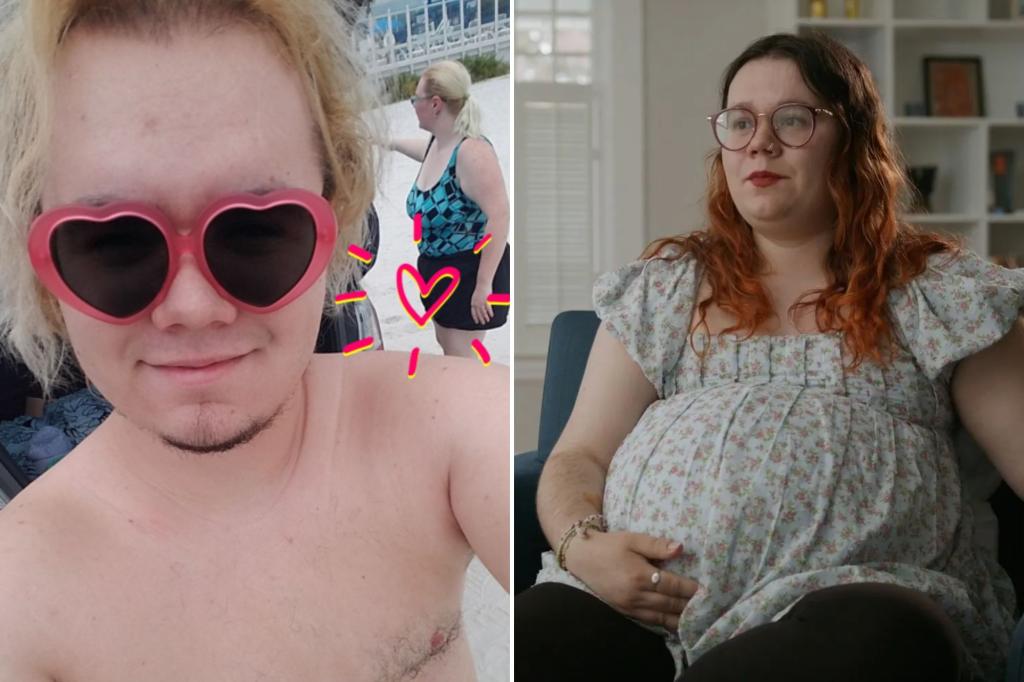On June 3, 26-year-old Prisha Mosley gave birth to a healthy baby boy via Caesarean section.
Until about two years ago, Mosley identified as a man, something that may not be all that unusual for a young woman of childbearing age.
She tried in vain to have a sex change, injected herself with testosterone, and at 18 had her healthy breasts removed, leaving her chest covered in scars.
Her hormones were and still are so out of whack that when Moseley went to see a doctor after missing her period, she laughed when asked if she was pregnant. Sure, she was in a relationship with her boyfriend, but she believed she was infertile.
“I still can’t believe I’m pregnant,” she told me, “and I still can’t believe he’s healthy.”
But this miracle didn’t come without countless complications and medical unknowns, and Mosley was stepping into uncharted territory as the first in a small group of women to complete their gender transition and become a mother.
Medical interventions such as cross-sex hormones can affect fertility, and Mosley began using testosterone during his development.
“Everything that happens to a woman’s body has a purpose, especially during pregnancy and childbirth,” Mosley said, adding that her own body mechanics are heavily influenced by testosterone.
After being essentially experimented on by doctors under the guise of “gender reassignment treatment,” she is now sharing raw, personal details about her unexpected and incredibly difficult journey to motherhood.
“I can go on and on about how heavy it is,” Moseley, now an ambassador for the Independent Women’s Forum, said of speaking out.
“But what’s worse is that it could happen to other people. The pain of imagining that other people might feel or experience what I’m going through numbs the pain of being a public case study. There’s no comparison. No one came to help me when I was little. No one told me the truth.”
Sadly, Moseley now knows the truth, and it hurts.
Her body was in disarray: Her liver was enlarged, her insulin levels were high, her uterus, bladder and vagina had shrunk, her hormone balance was making the baby grow, and her hips were too small for a vaginal birth.
“I was using my muscles to hold the baby and my back couldn’t take it. It hurts so much.”
As she points out, there is no standard of care for detransitioners. As the doctor explains in Kelsey Boller’s short documentary:Prisha Mosley: A Transgender Woman’s Pregnancy Journey” – I just don’t know how to handle her.
“It’s not good news, but it’s honest news,” Mosley said, adding that previous doctors and therapists who treated her for gender dysphoria “are not 100% sure what to do.” [in removing her breasts and pumping her with testosterone]It was a promise. I believed it completely, because I had to. I didn’t transition because I was having a good time. There was no neuroscience to change my brain, so I had to edit my body.”
Mosley’s confusion about her gender began at a young age, when she discovered ideas about gender online. She suffered from severe anorexia, anxiety and borderline personality disorder, and was shaken by a sexual assault at 15 and a pregnancy and miscarriage.
Her eating disorder stunted both her emotional maturity and her physical growth, especially in the waist area.
She transitioned socially to male at age 15 and began testosterone injections at age 17. A year later, she underwent a double mastectomy performed by a plastic surgeon in North Carolina.
At that time, becoming a mother was the last thing on her mind.
After living in the transgender community for several years, she realized in therapy that gender wasn’t her problem. She stopped having a sex change Now, she’s suing eight doctors, alleging they misled her into undergoing medical procedures and interventions that would lead to her becoming a lifelong patient.
Mosley is particularly distressed by her breast removal. She now has painful “stones” under her breasts that doctors say are “merely cosmetic” – lumps of milk stuck under scar tissue where the nipples had been reattached. Doctors say some of the breast tissue was not removed and is producing milk as a prolactin response.
Instead of a soft pillow for the baby, her chest is hard.
“I feel like a monster. When I hold him to my chest, I feel nothing.”
Mosley relied on donor breast milk, which she says was essential for her son’s development: “He spent the first few days of his life searching for something in my breasts that wasn’t there. He would just throw up. Only donor breast milk could stop that,” she said.
Moseley, who also helps raise her boyfriend’s daughter, would like to have more children, “but it’s not surprising to think that pregnancy is no longer an option,” she said.
But motherhood, which she describes as physically painful but emotionally fulfilling, has brought unexpected solace.
“For my body to be a place for me, I had to be a place for someone else.”


